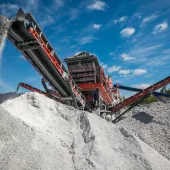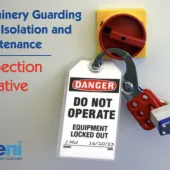Quarry operators urged to act now over fuel re-categorization

COMAH regulations expert Gareth Billinghurst highlights the forthcoming changes and likely implications
OPERATORS of quarries and mines are being urged by a health and safety legislation expert to act now over forthcoming changes to the way fuel will be categorized.
New legislation for the control of major accident hazards involving dangerous substances (Seveso III) will come into force from the start of June 2015, but a proposed Health and Safety Executive (HSE) amendment to this could have consequences which organizations need to be aware of and prepare for now, according to Cedrec, specialists in health and safety legislation.
The decision to implement changes has been driven by the EU, which wants to see improvements in the control of major accident hazards involving dangerous substances.
When Seveso III takes effect next year it will see a new system of dangerous substances classification come into force to ‘strengthen the provisions relating to public access to safety information, participation in decision-making and access to justice, and improve the way information is collected, managed, made available and shared’.
The aim is to tighten up a number of areas that have, hitherto, been somewhat lax or open to interpretation, improving public access to information and standards of inspection, and continuing to ensure a high level of protection to human health and the environment from major accidents involving dangerous substances.
The Seveso III Directive will be implemented through new Control of Major Accident Hazards (COMAH) regulations and planning legislation which comes under the responsibility of the Department for Communities and Local Government and the devolved administrations in Scotland and Wales.
According to Gareth Billinghurst, auditor and director at Cedrec, whole swathes of the UK mining and quarrying industry are likely to be affected by the incoming Directive, including many owners and operators of plant and equipment.
However, while there has been a significant amount of ‘noise’ concerning the Directive itself, Mr Billinghurst (pictured) is concerned that many of those responsible for health and safety within their organizations are under-prepared for, or simply unaware of, a proposed alteration to re-categorize heavy fuels (HFO) as ‘petroleum products’ from 20 February 2014 – and the implications this will bring.
The move proposed by the HSE will have the effect of changing HFO categorization from its current status of ‘dangerous for the environment’ to ‘petroleum products’, thereby increasing significantly the qualifying threshold inventories before the requirements of COMAH and Planning (Hazardous Substances) become applicable.
In the UK, it is still unclear what this will actually mean for the next generation of COMAH and an industry-wide consultation has been completed to find out whether the amendment explains what businesses need to do and the costs and benefits of the proposed changes.
According to Mr Billinghurst, an additional concern with such re-categorization is that many organizations could come within the requirements of the Regulation on Registration, Evaluation, Authorisation and Restriction of Chemicals (REACH).
‘REACH is now well under way, as substances are evaluated and tested. The result of this could mean the chemicals you use and produce are re-classified as a higher risk or even restricted. You could then fall into a different tier under COMAH (lower or higher) and have different requirements,’ explained Mr Billinghurst.
‘There is still uncertainty surrounding the new Directive, with the results of the consultation over the HSE’s proposed amendments not due until the summer. But what is clear is that change is coming and attempting to navigate through any change will be difficult even for those with responsibility for compliance, facilities management and health and safety.
‘Organizations need to have COMAH on their long-distance radar and start to prepare themselves now for the new legislative landscape,’ he concluded.









